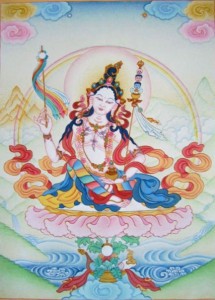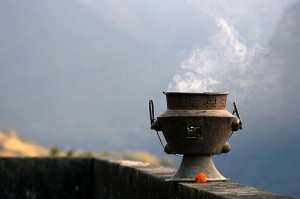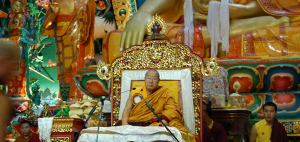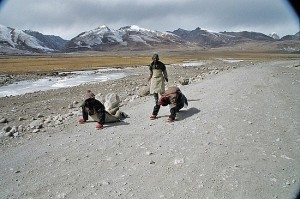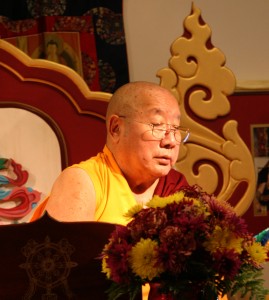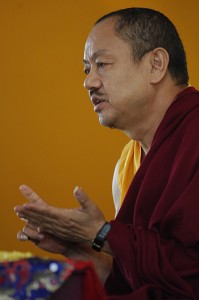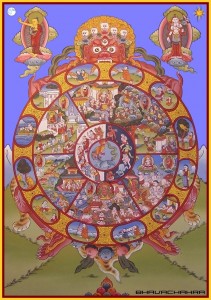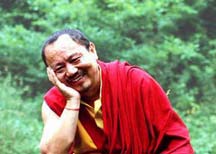The following is an excerpt from a teaching by Khenchen Tsewang Gyatso given at Kunzang Palyul Choling on Ngondro:
The law of cause and effect, or karma, has been explained a number of times by Jetsunma and myself. Whatever exists in this world is just the creation of oneself. There is logical proof and proper reasoning for this, and one can experience it for oneself. There are many examples that prove everything is the result of one’s own karma combined with one’s present life conditions. If you never do any harm to any sentient beings, you will not suffer. It is definite. In this lifetime, if you never say anything bad to someone, then this person is not going to do anything bad to you because you have not created any problem. When you create problems for another, then the other person also feels unhappy and gets angry, and then he creates problems for you. It plays back and forth and creates many troubles. That is how the law of karma works.
The law of karma is very, very subtle and very, very strict, no corruption. Whether one is very rich or a great philosopher or a very great doctor or a very great scientist or a very great modern technologist, whoever, there is no corruption of the karma. Whatever you have done, you will have to bear it. What you have not done, there is no way that you can experience it. Even if you wished to experience it, there is no way to do it. It is very, very subtle and very strict, and it has very good justice. There is no way that it can forget anything, that it can lose anything. Everything is fully imprinted, like the hard disk on your computers. Everything is there. Our mind and our actions, our body, speech and mind are like the floppy disk, and they are constantly putting things on the hard disk, where it stays. When you need something, you switch disks, and it comes out. When conditions happen, then it is ripening back to you because you have already inserted something in the hard disk of karma. You have put it in there, so never can that get lost or corrupted or erased. Fires cannot burn it. Waters cannot wash it. Winds cannot carry it away, unlike computers, which fires can burn. Your whole hard disk with 10 years of programs, when it is burned, it is gone like that. But none of the five elements can harm the karma computer. No one can harm it. When conditions happen, it will definitely ripen back to you and you alone. There will be no mistake. Mr. A’s karma will not ripen to Mr. B, and Mr. B’s karma will not ripen to Mr. A. Those sorts of things are not going to happen in that way. It is very subtle, very strict, very just. No corruption. It cannot get lost, cannot be burned. Everything is so organized, much, much better organization than your schedules. When there are proper conditions, then that is going to ripen to you. That is the actual life process. That is experienced by all sentient beings. That is the law of karma.

